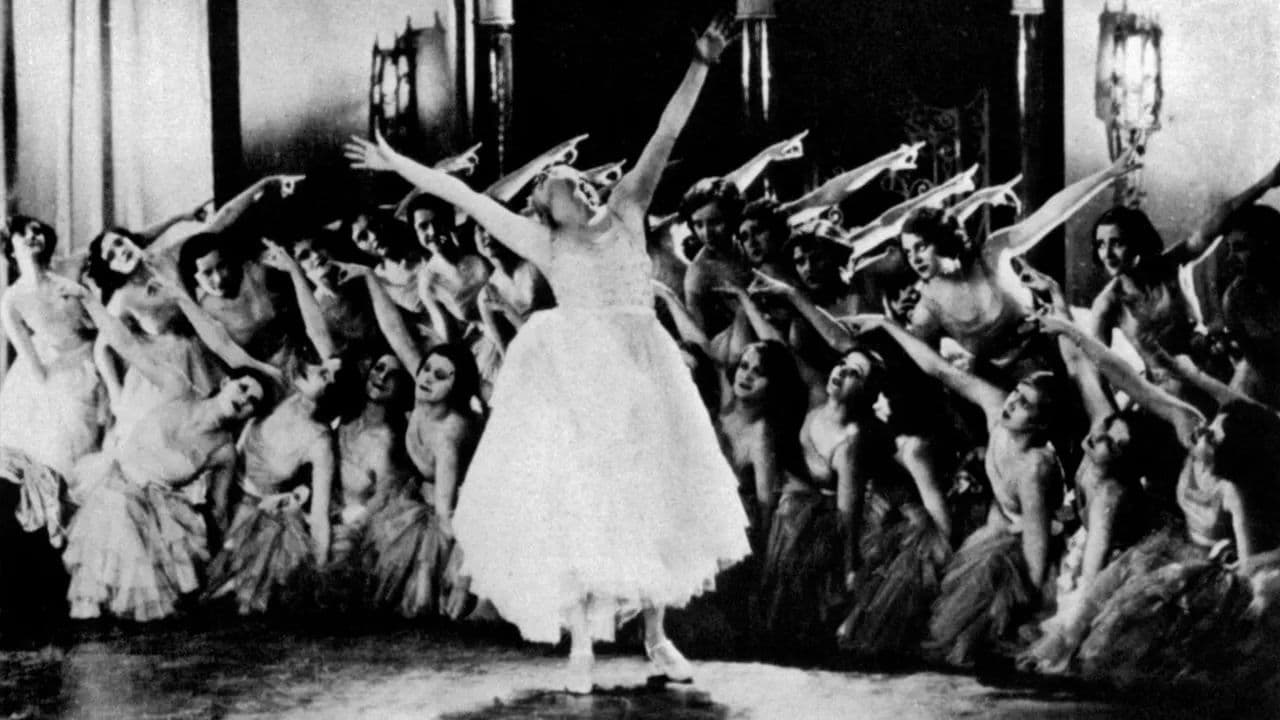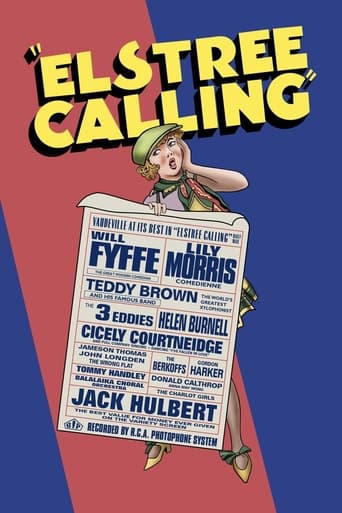


Released in 1930, Elstree Calling was directed by Andre Charlot, Jack Hulbert, Paul Murray, and Alfred Hitchcock. Luckily, too many cooks did not spoil the broth in this case but created a marvelous musical and comedic soufflé. The film is a series of vaudeville-type skits and sketches. Tommy Handley hosts the show. "Think, and having thunk, think again," Handley humorously advises the audience. The sections vary in quality but none are poor. Among the best: Teddy Brown whistling while playing the xylophone; lovely, blonde, and ethereal Helen Burnell in a sparkling sequined gown singing; a sprightly Russian-style song and dance number; Cicely Courtnedge singing an entrancing rendition of I'm Falling In Love; and Jack Hulbert and Helen Burnell in a dynamic duet. One brief sketch is darkly humorous as a man appears to enter a home, shoot the man and woman he "catches" kissing, only to realize, "I'm in the wrong flat!" In one section, bagpipes play while a Scotsman in a kilt sings about how "happiness costs such a lot." It is wonderfully sung but some viewers may be offended by the way it plays on the stereotype of the Scots as stingy.Far more viewers are apt to be offended by the sketches done by "The Three Eddies." The tap dancers are in blackface with white lips, white bowler hats, and white-rimmed round eyeglasses. Their tap dancing is wonderfully skilled but one does not have to be a stickler for "political correctness" to be disturbed by the racist stereotyping in their act. A better note is struck in a skit in which Elstree Calling appears to play with racial (not necessarily racist expectations). In an odd take on The Taming of the Shrew, Anna Mae Wong is the clearly Asian daughter of a white man. Beautiful Wong appears as Katherine in a shiny and revealing outfit. Instead of being "tamed," this "shrew" gets her revenge by throwing cream pies in the faces of all the men around her – including Shakespeare himself!Like many works from past time periods, Elstree Calling sometimes strikes an "off" chord with contemporary audiences. Nevertheless, it is a fast-paced and fun series. One hour and twenty-six minutes long, it never drags but is a very entertaining potpourri of performances.
... View MoreHichcock's WTF movie. He's co-director of a static early sound film that is the British version of the all singing and all dancing review films that Hollywood do in the late 20's early 30's. Only it's less opulent and it has a real feeling of being a filmed stage play. It also suffers from weak music and dancing and unfunny comedy bits.I know the surviving prints are shorter than then what it once was which is probably better that way. Since some of the bits seem to go on way too long.You're either going to love this or hate it.For me once was enough.
... View MoreEllstree Calling is a delightful revue film for those who can appreciate eras other than their own. Some of the highlights are: The Three Eddies, a top African American tap dance team that made a big success in the U.K.; they dance two numbers in this revue. Two numbers also by Lily Morris are great giggle ("Why Am I Always the Bridesmaid" is gem of character comedy.) Cicely Courtneidge closes the movie in a production number in color, doing an amusing song & eccentric dance. And Donald Calthrop interrupts the proceedings a number of times as an actor willing to do anything to get his moment in the spotlight. A couple of color production numbers are campy at best, but the film's strength is the individual 'turns' by its variety stars. Ellstree Calling was one of the most successful early talkies anywhere in the world: it was translated into 11 languages and made a fortune through the United Kingdom, Australia, New Zealand, South Africa and other British outposts around the globe. -- Frank Cullen American Vaudeville Museum and Vaudeville Times quarterly
... View MoreElstree Calling (1930), like most of the revues of the era, has some high points and misfires. Hitchcock's linking material here can be quite funny, and the colour sequences aren't bad (even if "The Thought Never Entered My Head" is a bit ungainly). A pleasant goof, for most
... View More